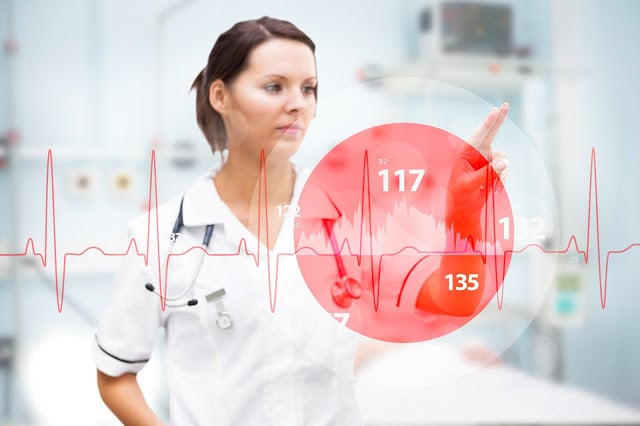Every time your heart beats, it pumps blood through your arteries to your entire body. Blood pressure readings measure how hard your blood pushes against your arteries when your heart is pumping.

Everyone has blood pressure and you've probably had yours screened at a routine physical. Just what do those numbers mean? Let's learn more about blood pressure readings and what they can tell you about your overall health.
Blood pressure measurements are read as two numbers:
- Systolic pressure: higher number, normal reading is 120 millimeters of mercury (mmHg) or less
- Diastolic pressure: lower number, normal reading is 80 mmHg or less
High blood pressure is defined as systolic pressure greater than 140 mmHg and/or diastolic pressure greater than 90 mmHg. You are considered pre-hypertensive if your systolic blood pressure is between 120-139 mmHg, or your diastolic pressure is between 80-89 mmHg.
Numbers in the normal range are good. Numbers consistently in the higher range are defined as high blood pressure and, over time, high blood pressure can lead to serious disease.
About one in three U.S. adults has high blood pressure. - American Heart Association
About high blood pressure
High blood pressure, also known as hypertension, is a disease that can have serious health consequences if not treated. In a person with high blood pressure, the arteries are being stretched and damaged which can cause problems that, over time, permanently damage your heart, brain, eyes, and kidneys - before you even feel a problem. Left untreated, high blood pressure can lead to:
- Damage to the heart and coronary arteries, including heart attack, heart disease, congestive heart failure, aortic dissection and atherosclerosis (fatty buildups in the arteries that cause them to harden)
- Stroke
- Kidney damage
- Vision loss
- Erectile dysfunction
- Memory loss
- Fluid in the lungs
- Angina
- Peripheral artery disease
Are you at risk for high blood pressure?
High blood pressure is a disease with no symptoms. Anyone can have it and many who do have it, are unaware. Starting at age 20, the American Heart Association recommends a blood pressure screening at your regular health care visit or once every two years, if your blood pressure is less than 120/80 mmHg. Your doctor may decide to screen yours more often based on your health history and risk factors.
Some people are at a higher risk for high blood pressure and should have their blood pressure read more often. High blood pressure is more common in men, postmenopausal women, older adults, and people of African American descent. Other factors that may increase your risk of high blood pressure include:
- Overweight

- Heavy drinking of alcohol
- Smoking
- Use or oral contraceptives (birth control pills)
- Sedentary lifestyle
- Family history
- Kidney disease
- Diabetes
- High-fat, high-salt diet
- Stress
Monitor your blood pressure
The two numbers in your blood pressure reading are important to monitor for your overall health. If you have the above risk factors or haven't had your blood pressure read in more than a year, it's time to make an appointment with your primary care doctor.



